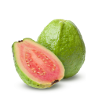This afternoon I was working on implementing a user story with (JodaTime) LocalDate ranges. The problem? I needed to represent a lot of periods, in days. The thing I needed to check: Is a certain LocalDate contained in this period.
First I started looking at JodaTime itself, it has support for Interval(s). But there is a ‘problem’, Interval is based around ReadableInstants, and LocalDate is a ReadablePartial, not a ReadableInstant! So to make my code work I had to do the following:
// Use two LocalDate instances to create an Interval (the JodaTime way)
private Interval createInterval(LocalDate fromDate, LocalDate toDate) {
DateTime fromDateTime = fromDate.toDateTimeAtStartOfDay();
DateTime toDateTime = toDate.toDateTimeAtStartOfDay();
return new Interval(fromDateTime, toDateTime);
}
// Now to check an interval I needed to call:
createdInterval.contains(inputDate.toDateTimeAtStartOfDay());It works, sure, but the conversion to ReadableInstant with toDateTimeAtStartOfDay kind of bugged me. But luckely Google Guava has something to make the code much cleaner: Ranges
Using Range made the code much smaller and easier to read:
// Use two LocalDate instances to create an Range (the Google Guava way)
private Range<LocalDate> createRange(LocalDate fromDate, LocalDate toDate) {
return Range.closedOpen(fromDate, toDate);
}
// To check:
createRange.contains(inputDate);I really love using Google Guava, it provides solutions for a lot of common programming challenges. Not only that, their API is very very clean and skillfully designed. The use of open/closed in Range.java is very handy and makes it easy to think about corner cases.

